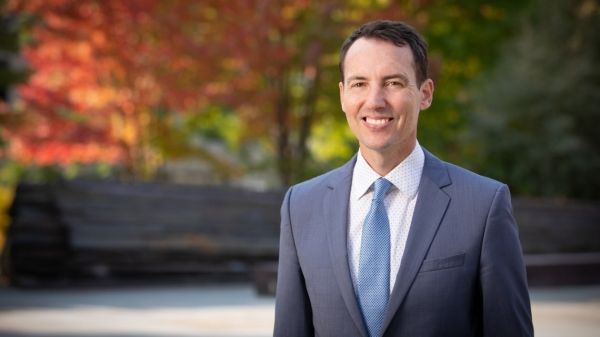On a clear morning in October 2019, Benjamin Z. Houlton stood at the edge of a corn field in California’s Central Valley. A truck drove back and forth along the tilled rows, sprinkling a special fertilizer over the ground – and setting in motion the largest soil amendment experiment of its kind in the world.
If all goes as planned, the addition of rock dust – rich in potassium, iron and zinc – will help increase the crop’s overall yield and nutrient density and will also sequester carbon dioxide (CO2) from the atmosphere.
“Each time these natural rock particles break down, they scavenge CO2 from the air, acting like sponges that securely lock that carbon into the soil for up to 100,000 years,” says Houlton, who on Oct. 1 began a five-year term as the new Ronald P. Lynch Dean of the College of Agriculture and Life Sciences. “It produces nutrient-dense food more efficiently. It increases farmers’ bottom lines. And it helps the global environment.”
Getting to this point required decades of research and years of dedicated outreach.
Houlton’s formula for success? Innovation, collaboration and carbon sequestration.
Continue reading at Cornell University.
Image via .


